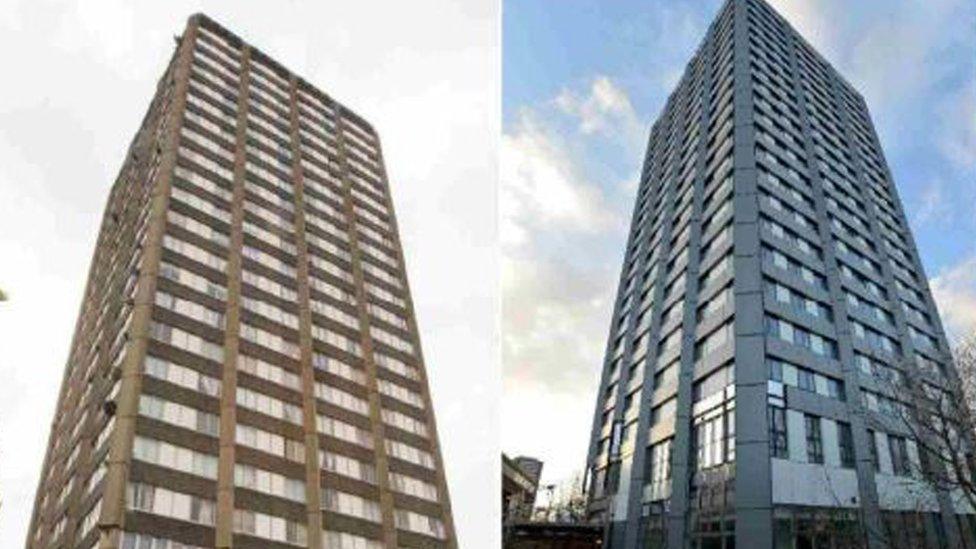Grenfell fire: Ban on combustible material 'not enough'
- Published
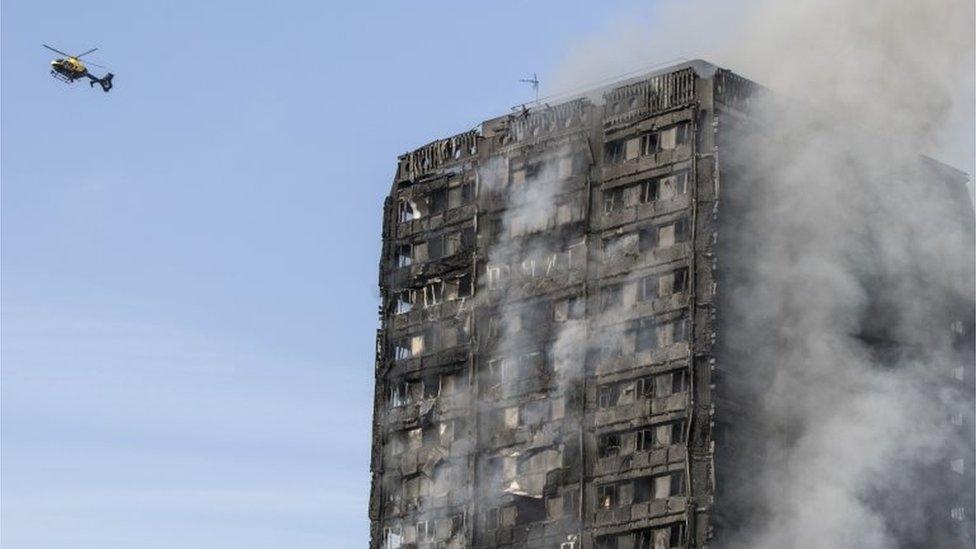
The cladding used on Grenfell Tower in west London meant the fire spread quickly
The government's proposed ban on using combustible materials for new high-rise buildings does not go far enough, the Commons housing committee have said.
The MPs' report says any ban should include existing buildings and those under construction. Current proposals only affect new buildings over 18m.
The committee also says the wider use of sprinklers would save lives.
The government said its plans for "fundamental reform" of regulations would keep people safe in their homes.
The MPs' report comes a year after 72 people died in the Grenfell Tower fire, in west London on 14 June 2017.
Cladding panels used on on the tower block burnt quickly and spread the fire, leading the government to suggest a ban on combustible materials being used on planned buildings over 18m high.
The committee said it was "disappointing" a review of building regulations - led earlier in the year by Dame Judith Hackitt - had not recommended a ban on materials that catch fire.
In addition to extending the ban to more buildings, including high-risk properties such as hospitals, the committee said the government should pay for dangerous cladding to be removed.
Lord Porter, chairman of the Local Government Association, said: "The evidence from real fires in real tower blocks shows that using combustible materials on the external walls of high-rise buildings kills people.
"We continue to strongly urge the government to ban the use of any combustible materials - including cladding panels, insulation and other materials - on the external walls of high-rise and high-risk buildings."
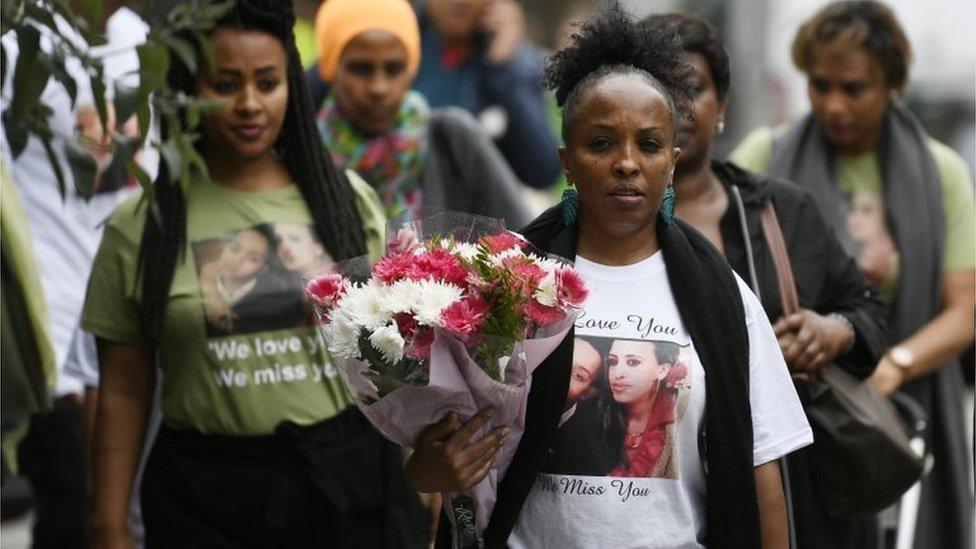
Friends and relatives of Grenfell Tower fire victims at a church service mark the one year anniversary of the disaster
The Housing, Communities and Local Government Select Committee chairman, Clive Betts, said a year on from "the catastrophic events at Grenfell Tower" the industry was "still no closer to having a system that inspires confidence that residents can be safe and secure in their homes."
He said there was a need for both "a fundamental change of culture" in the industry but also measures that "should be introduced now".
'Conflicts of interest'
The MPs have urged the government to improve the building safety rules that govern the construction industry.
Their report said the complexity of industry rules was "compromising safety and putting people at risk in their own homes".
It argued that the industry was "riven with conflicts of interest" with builders choosing their own inspectors, manufacturers picking lenient product testers and Fire Rescue Authorities inspecting the work of their own commercial trading arm.
Mr Betts said: "It just cannot be right that builders get to choose who marks their homework and urgent action is needed to make sure this does not continue."
The Ministry of Housing, Communities & Local Government said its proposals went further than Dame Judith's recommendations and included £400m for the removal of unsafe cladding.
A spokesman added: "We are acting quickly, including... meaningful and lasting reform of the building regulatory system, with strong sanctions for those who fail to comply and restructuring building regulations fire safety guidance to ensure it is clear."
- Published18 May 2018
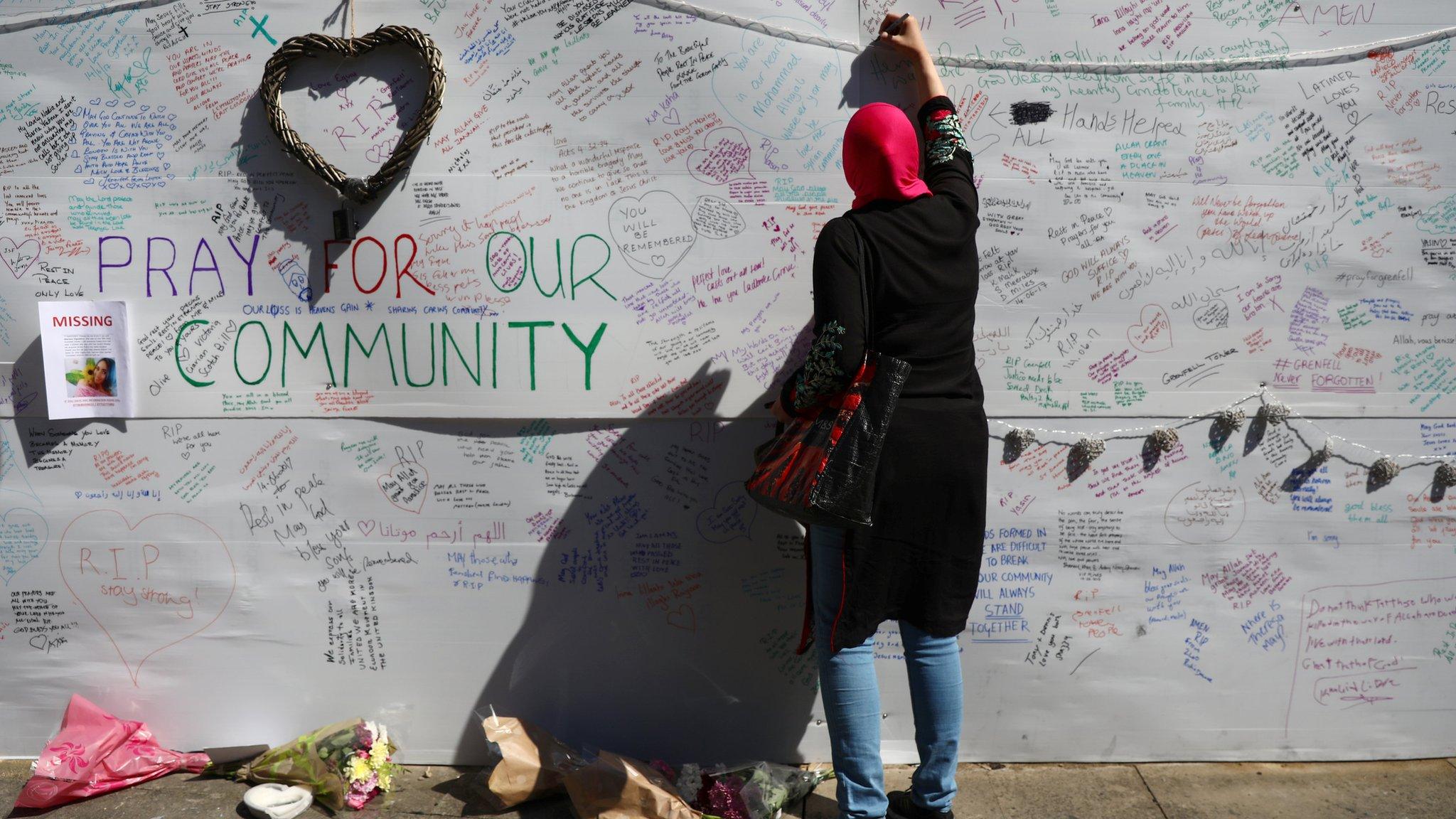
- Published4 June 2018
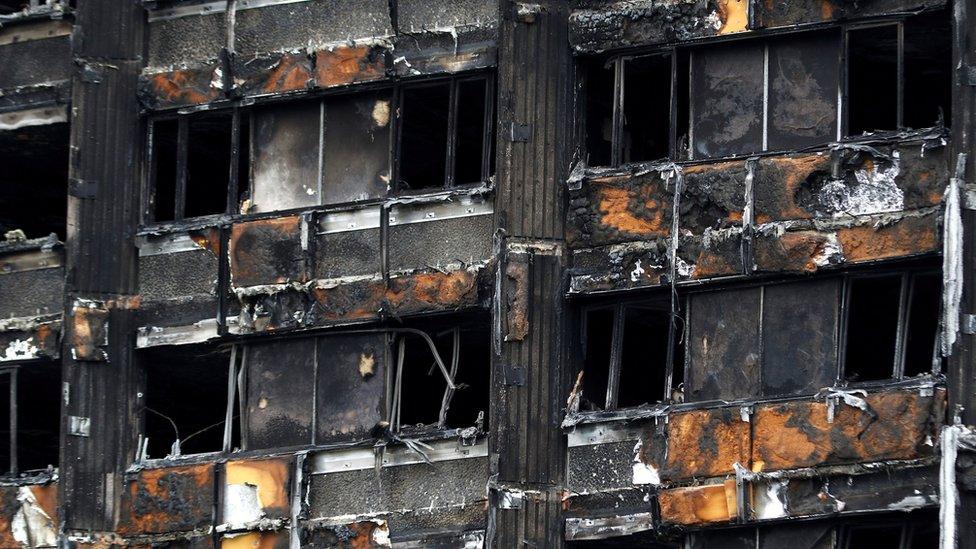
- Published4 June 2018
